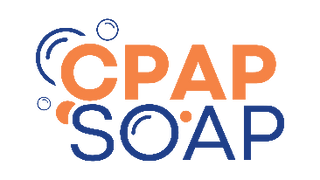If you are one of the many people who have come to rely on a CPAP machine to enhance your quality of life and alleviate certain health conditions, then you understand the importance of CPAP maintenance and keeping it in good working order. However, you may not quite realize the potential hazards of not cleaning it consistently.
If you are ready to learn more about CPAP machines and why you must clean them on a routine basis, continue reading.
What is a CPAP Machine?
A continuous positive airway pressure machine, more commonly referred to as a CPAP machine, is a small, portable device that is worn while the user is sleeping. The main purpose of a CPAP machine is to deliver a continuous supply of air into the user’s mouth, nose, or both in order to keep their airways open during sleep. A prescription from your medical provider and proof of a sleep study are necessary to purchase a CPAP machine.
While there are various types of CPAP machines and additional components depending on a person’s individual needs and the prescribing healthcare provider’s recommendations, the basic parts include:
- Mask
- Mask straps or headgear
- Tubing or hose
- Blower
- Air Filters
- Humidifier (not included in all models)
What Are the Dangers of Not Cleaning Your CPAP Machine Regularly?
Just as you maintain a cleaning schedule for your home, you need to have one in place for your personal care devices, especially medically necessary ones, such as a CPAP machine. Forgetting or choosing not to clean your CPAP regularly can lead to serious health risks.
The following points will help you understand why CPAP sanitizing is essential:
1. A quick look at some potential symptoms of a dirty CPAP machine may include:
- Sneezing and wheezing
- Sore throat
- Cough
- Congestion and stuffiness
- Sinus infections
- Skin irritations and inflammation
- Runny nose
- Respiratory infections
- Airway damage
2. CPAP machines can spread infections in the form of airborne particles and viruses. These can fester inside of the unclean components and become airborne when you put on your CPAP mask. Once the device is turned on, they have a direct line into your body.
3. Mold, buildup, and other unwanted contaminants can build up inside the moist interior environment and on the outside of the CPAP machine, resulting in damage to the machine and your body.
4. Allergy and asthma sufferers should heed special caution to clean their respective machines since microorganisms such as dust, pollen, and fine pet hairs or dander can collect inside the CPAP machine and exacerbate existing allergy or asthma problems or even trigger an asthma attack.
5. An unclean CPAP mask may harbor skin oils and dirt that have built up on your skin during the day, transfer to the mask, and then back to you each time you wear it, along with makeup and skincare products. Any build-up can lead to unwanted redness, irritation, rashes, and adult acne when left unclean. To that end, a good facial hygiene routine is essential to follow before using the CPAP machine each evening to prevent excess build-up from occurring.
6. The efficacy of your CPAP machine is crucial to your health. When any of the parts become clogged or fail due to lack of care, you may lose the essential benefits of CPAP therapy. In addition, the out-of-pocket costs of replacing the machine or dirty components if not cleaned properly are prohibitive, especially if your insurance won’t cover a second device.
How Do You Clean Your CPAP Machine?
Cleaning your CPAP machine is as easy as creating a habit to begin with. Set aside five to 10 extra minutes each morning after you remove your CPAP to properly clean the device. Make it a part of your morning routine, along with brushing your teeth and getting ready for the day.
Here is a quick guide to get you started.
1. Gather your Supplies:- Mild CPAP Soap
- Gentle, clean, lint-free cloth
- Sanitized sink, wide bucket, or tub
- Large lint-free towel
- Long, flexible, and narrow brush
- Distilled water
- White vinegar (for CPAPs with humidifier components)
- Clean working area
2. Disassemble - Turn off and unplug the CPAP machine before cleaning. Always follow the included instructions. Start by disassembling the main components. This should include the air hose, tubing, mask, and humidifier, if applicable. Some masks have separate components. Take those apart to clean if yours does.
3. Clean and Sanitize - Wash the tubing and hose in warm, soapy water using CPAP-formulated soap. Submerge the tubing and hose in the water and clean them with a narrow brush. Thoroughly wash the mask and head straps to remove all oils and dirt. Gently wipe down the rest of the CPAP machine with a damp, soapy cloth. Take care to avoid introducing water to the electrical elements.
If your CPAP machine has a humidifier reservoir, place it into a separate tub filled with white vinegar and allow it to soak while you’re cleaning the rest of your components.
5. Rinse - After cleaning, thoroughly rinse each component with cold, clean water until the soap is removed. Gently shake the pieces to remove excess moisture, and place them on an absorbent, lint-free towel to air dry. Only reassemble after everything is completely dry.
Though the information above is generally universal, it is important to note that you should always follow manufacturer’s guidelines for daily and weekly maintenance of your sleep equipment.
